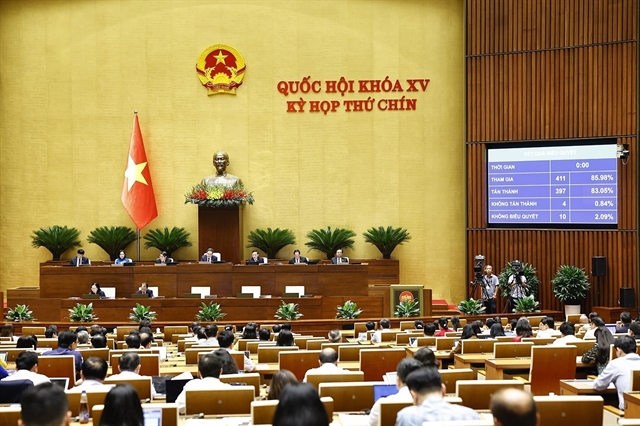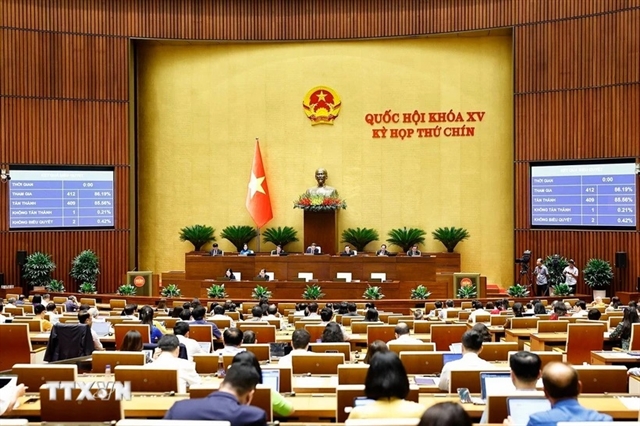 Economy
Economy

 |
| Apartment buildings in HCM City. Việt Nam ranked 49th out of 89 economies in term of real estate transparency, according to a recent global real estate transparency index (GRETI) 2024 rankings by global property services firm Jones Lang LaSalle. — VNA/VNS Photo Hồng Đạt |
HÀ NỘI — Việt Nam ranked 49th out of 89 economies in term of real estate transparency, according to a recent global real estate transparency index (GRETI) 2024 rankings by global property services firm Jones Lang LaSalle (JLL).
GRETI is based on a combination of quantitative market data and survey results across 89 countries and 151 city markets.
The index includes 256 individual transparency measures divided into 14 topic areas which are then grouped and weighted into six broad sub-indices including performance measurement, market fundamentals, governance of listed vehicles, regulatory and legal, transaction process and sustainability.
“During these times of heightened uncertainty, transparency is more important than ever as the foundation which allows real estate occupiers, investors and lenders to operate and make decisions with confidence,” the report wrote.
Việt Nam improved from 52nd in 2022 rankings to 49th this year, maintaining its position among the group of semi-transparent markets.
The country entered GRETI for the first time in 2020 with the ranking of 56th.
In the world, the US, Canada, France and Australia are all among the global top improvers, while Singapore has entered the ‘Highly Transparent’ group for the first time, boosted by a focus on sustainability and digital services.
This top set of countries has attracted over US$1.2 trillion in direct commercial real estate investment over the last two years, more than 80 per cent of the global total. — VNS





 Cusson Leung, Chief Investment Officer at KGI; James Chu, Chairman at KGI Securities Investment Advisory; James Wey, Head of International Wealth Management at KGI; Kenny Wen, Head of Investment Strategy at KGI)



